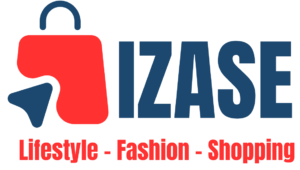Introduction
The COVID-19 pandemic has ushered in an unprecedented era, reshaping economies worldwide. As nations grapple with the aftermath, a new economic landscape is emerging—the Coronavirus Economy. This article delves into the various facets of this evolving paradigm, from its inception to its implications for industries and individuals.
Defining the Coronavirus Economy
The Coronavirus Economy refers to the economic conditions shaped by the COVID-19 pandemic and the ensuing global response. It encompasses shifts in consumer behavior, market dynamics, and government policies aimed at mitigating the pandemic’s effects.
Relevance and Importance
Understanding the Coronavirus Economy is crucial for businesses, policymakers, and individuals alike. It impacts employment patterns, investment strategies, and socio-economic policies, requiring adaptability and resilience.
Types and Categories
1. Traditional Industries
Industries such as retail, hospitality, and tourism have been profoundly affected by the pandemic, facing disruptions in supply chains and demand.
2. Remote Work
The surge in remote work has transformed the dynamics of traditional office spaces, leading to increased reliance on digital communication tools and flexible work arrangements.
Symptoms and Signs
1. Economic Recession
The Coronavirus Economy has triggered a global recession, marked by declining GDP growth, rising unemployment rates, and reduced consumer spending.
2. Digital Acceleration
A notable symptom of the Coronavirus Economy is the accelerated digital transformation across industries, with businesses embracing e-commerce, telemedicine, and remote collaboration tools.
Causes and Risk Factors
1. Virus Spread
The rapid spread of the COVID-19 virus necessitated widespread lockdowns and social distancing measures, disrupting economic activities worldwide.
2. Policy Responses
Governments implemented fiscal stimulus packages and monetary policies to cushion the economic impact of the pandemic, but these measures vary in effectiveness across regions.
Diagnosis and Tests
1. Economic Indicators
Key economic indicators, such as unemployment rates, GDP growth, and consumer sentiment indices, serve as diagnostic tools for assessing the health of the Coronavirus Economy.
2. Market Analysis
Analyzing market trends, consumer behavior, and supply chain disruptions provides insights into the economic implications of the pandemic.
Treatment Options
1. Fiscal Stimulus
Governments deploy fiscal stimulus measures, including direct payments, loans, and grants, to support businesses and households affected by the pandemic-induced downturn.
2. Monetary Policies
Central banks adjust interest rates, implement quantitative easing, and provide liquidity support to stabilize financial markets and spur economic recovery.
Preventive Measures
1. Diversification
Businesses diversify their revenue streams and supply chains to mitigate risks associated with future disruptions.
2. Digital Resilience
Investing in digital infrastructure and cybersecurity measures enhances resilience against future crises and facilitates remote operations.
Personal Stories or Case Studies
John’s Experience: Adapting to Remote Work
John, a marketing executive, shares his journey of transitioning to remote work amidst the pandemic and its impact on work-life balance.
Maria’s Struggle: Navigating Financial Uncertainty
Maria, a small business owner, recounts the challenges of keeping her venture afloat amid economic uncertainty and evolving consumer preferences.
Expert Insights
Dr. Smith’s Perspective: Economic Recovery Outlook
Dr. Smith, an economist, provides insights into the prospects for economic recovery post-pandemic and the role of policy interventions in shaping future outcomes.
Conclusion
The Coronavirus Economy represents a paradigm shift with far-reaching implications for businesses, governments, and individuals. Navigating this new economic landscape requires agility, innovation, and collective action to build a more resilient and sustainable future.
More From IZASE
- Modular Systems Will Keep Your Smart Home from Becoming Obsolete
- Apple Unveils their Top 5 Best Selling Movies of All-Time
- The Best Cheap Retro Fashion for this Fall
- Lights Guide for your Home: Ultimate LED vs. Old Generations
- Level Up: Tips and Tricks to Improve Your Gaming Skills
- How iPhone Mastered Fast Charging and Retained Lightning Port
More From IZASE
- Malware Can Be Introduced into Smart Home's Operating Systems
- Ethernet Internet Connection is Loosing the Battle With WiFi
- The Best Smartphone Cameras to Consider for your Next Vacation
- 10 Social Media Trends You Need to Know in 2024
- New Nintendo Wii Console Goes on Sale in Strategy Reboot
- Images from Hundreds of PCs & Control Systems Available


